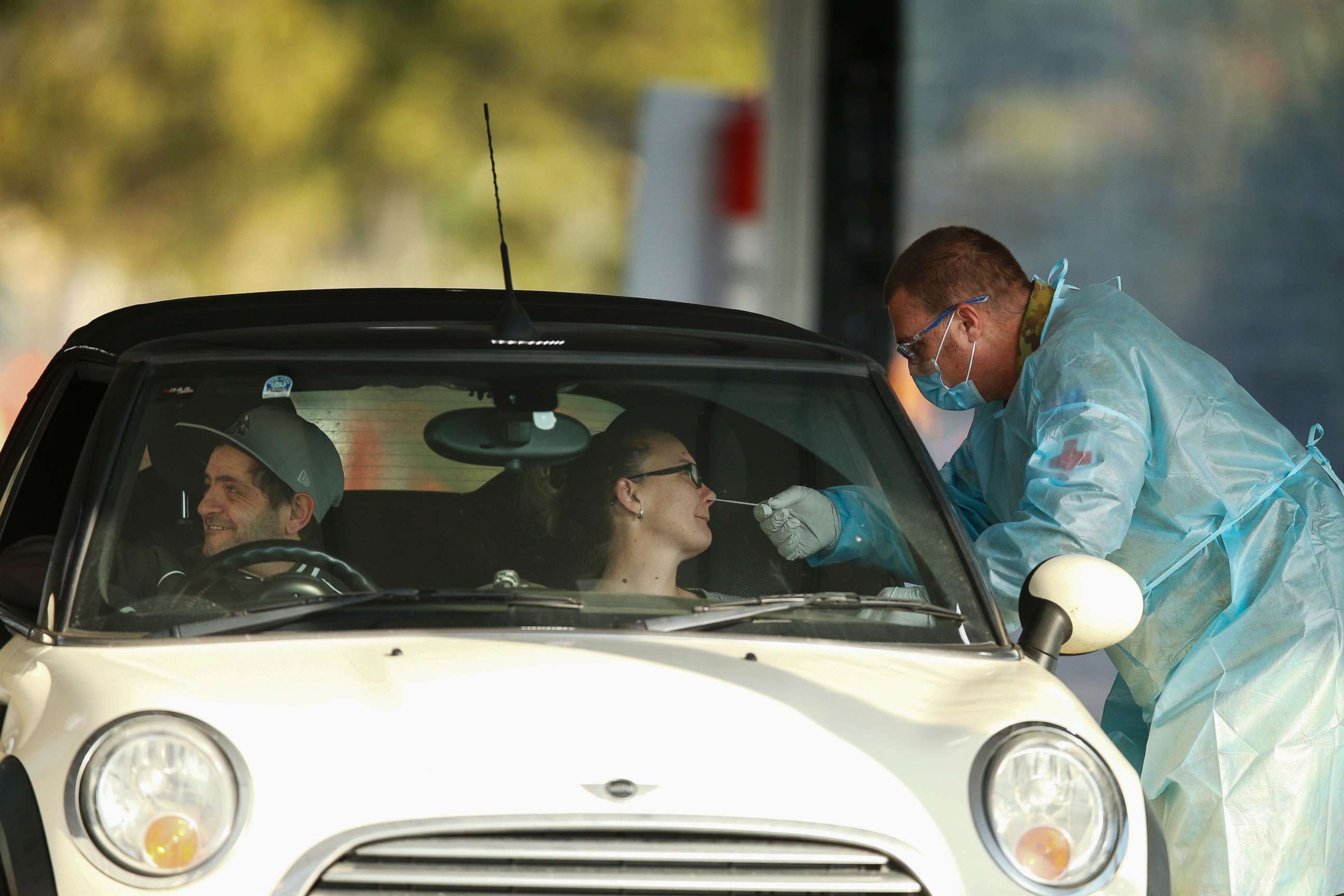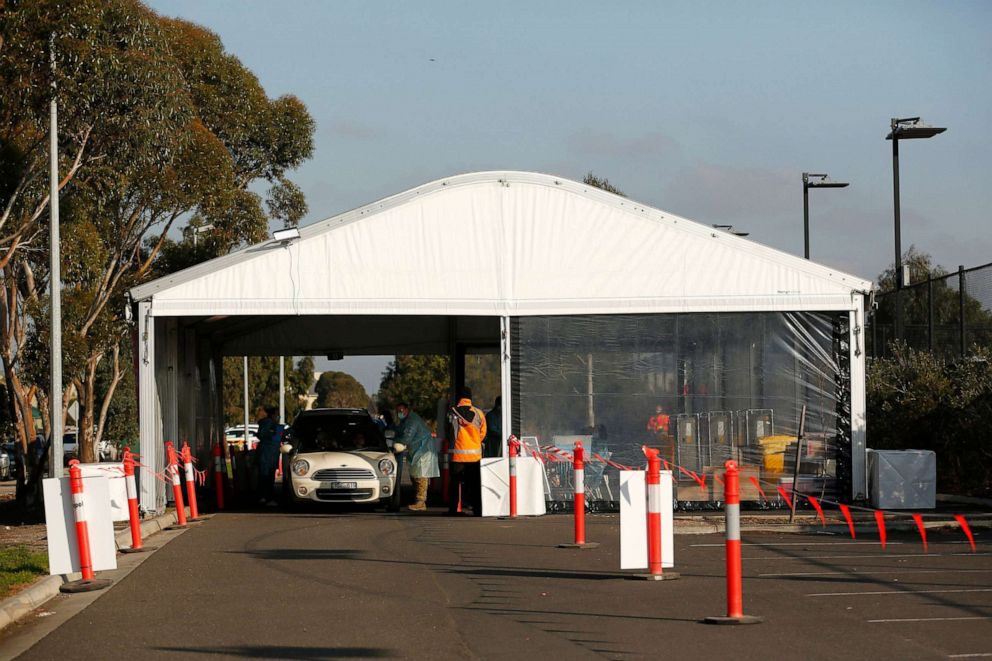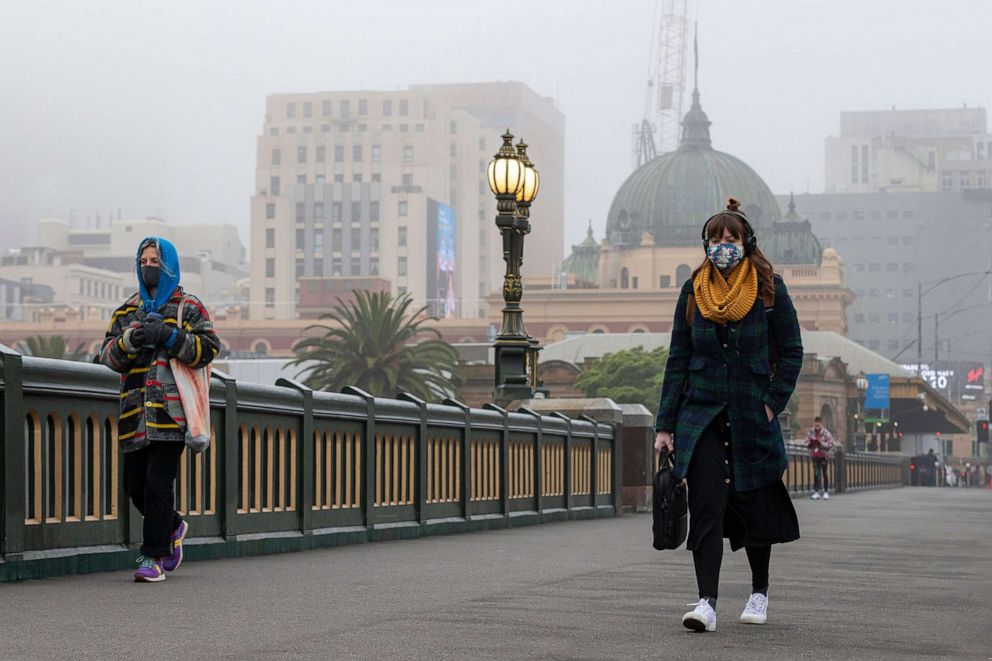2nd COVID lockdown in Australia elicits frustration, debate over inequality
"We've been treated like we're actually being detained."
Until now, Australia had been heralded as a global leader in combating the novel coronavirus, which is why a sudden surge in cases came as a shock.
Nearly 5 million residents in the hardest-hit city of Melbourne were just emerging from a two-month lockdown, beginning to enjoy the easing of restrictions, before they were told to go back indoors for six weeks -- allowed to leave home only for essential purposes.
This second wave has been tougher on some more than on others. For residents in nine public housing towers in Melbourne, all placed under a hard lockdown two weeks ago after tenants contracted the virus, it's become a living nightmare.
Residents said they were given just an hour's warning before their estates were ordered to lock down. Food and medical supplies slowly trickled in. As residents were tested one by one, the government deployed hundreds of police to the area.

"We've been treated like we're actually being detained," Lana Sheya told ABC News.
The 28-year-old is in the last remaining tower still under a hard lockdown.
"I feel like our basic human rights have been taken off us," Sheya added. "We've been unable to exercise and get fresh air, let alone leave our apartments."
Sheya, who moved to Australia from Egypt with her Eritrean family when she was 2, said she believes the residents have been treated unfairly because they're mostly immigrants.
The Black Live Matter movement, she said, has been a wake-up call for Australia and helped draw attention to what's happening at the towers, exposing the inequality and racism "in our own backyard."

Just a 10-minute drive away from the towers, 27-year-old economist Andy Bridger told ABC News that "there's a fair amount of sympathy in the community" for those confined there.
Bridger's partner volunteered at the towers when all nine were under lockdown.
"It was quite surreal driving into the area surrounding the towers, with police lights flashing, fire engines everywhere. It was something that we're not really used to in Australia," Bridger said.
His lockdown experience has been starkly different.

"Those lockdowns are a lot more stringent than what we're currently experiencing," he continued. "We've been dealing with it relatively well, and I think that's because we're still employed and able to work from home. Secondly, we live in a house and not in a flat. So we're not locked in without sunlight. And thirdly, we don't have kids."
Melbourne recorded more than 400 new cases on Friday, while numbers in Sydney also rose, pushing the national tally beyond 11,200.
The border between the country's two largest states has been closed for the first time in a hundred years.
Victoria state Health Minister Jenny Mikakos described the second wave as "the fight of our lives."
What to know about the coronavirus:
- How it started and how to protect yourself: Coronavirus explained
- What to do if you have symptoms: Coronavirus symptoms
- Tracking the spread in the U.S. and worldwide: Coronavirus map




